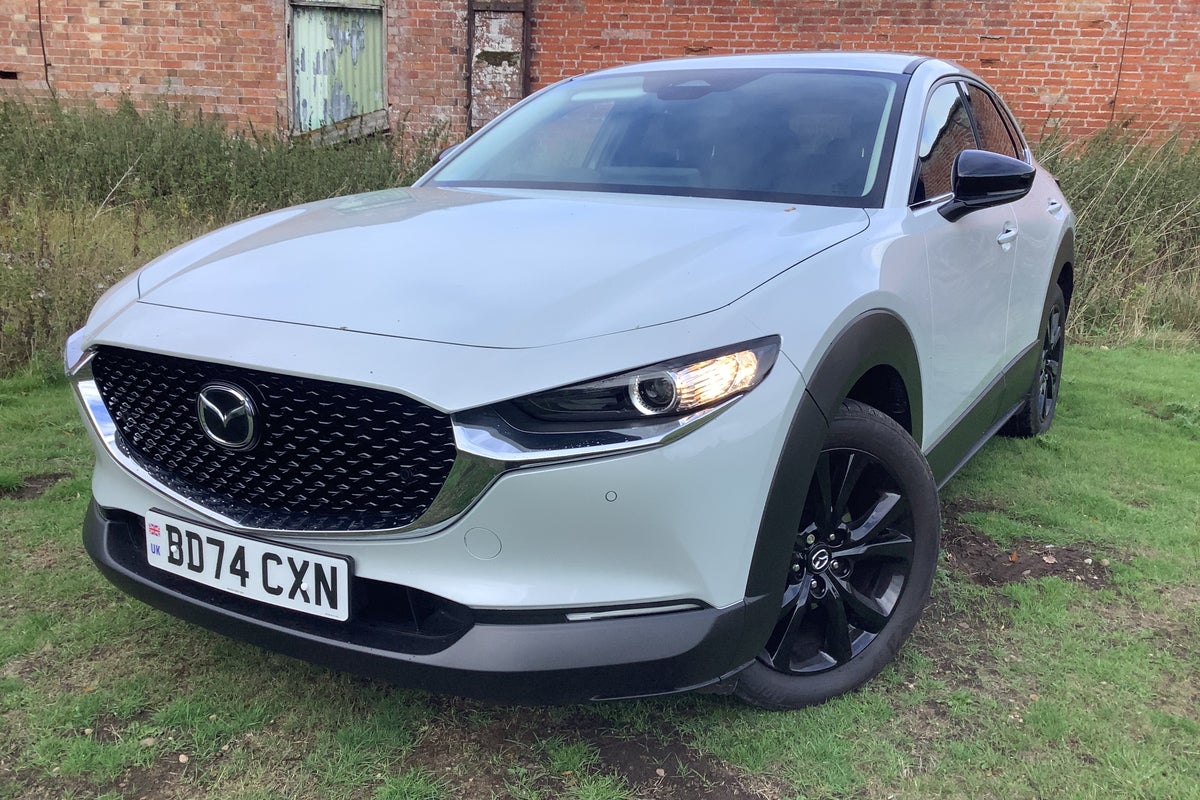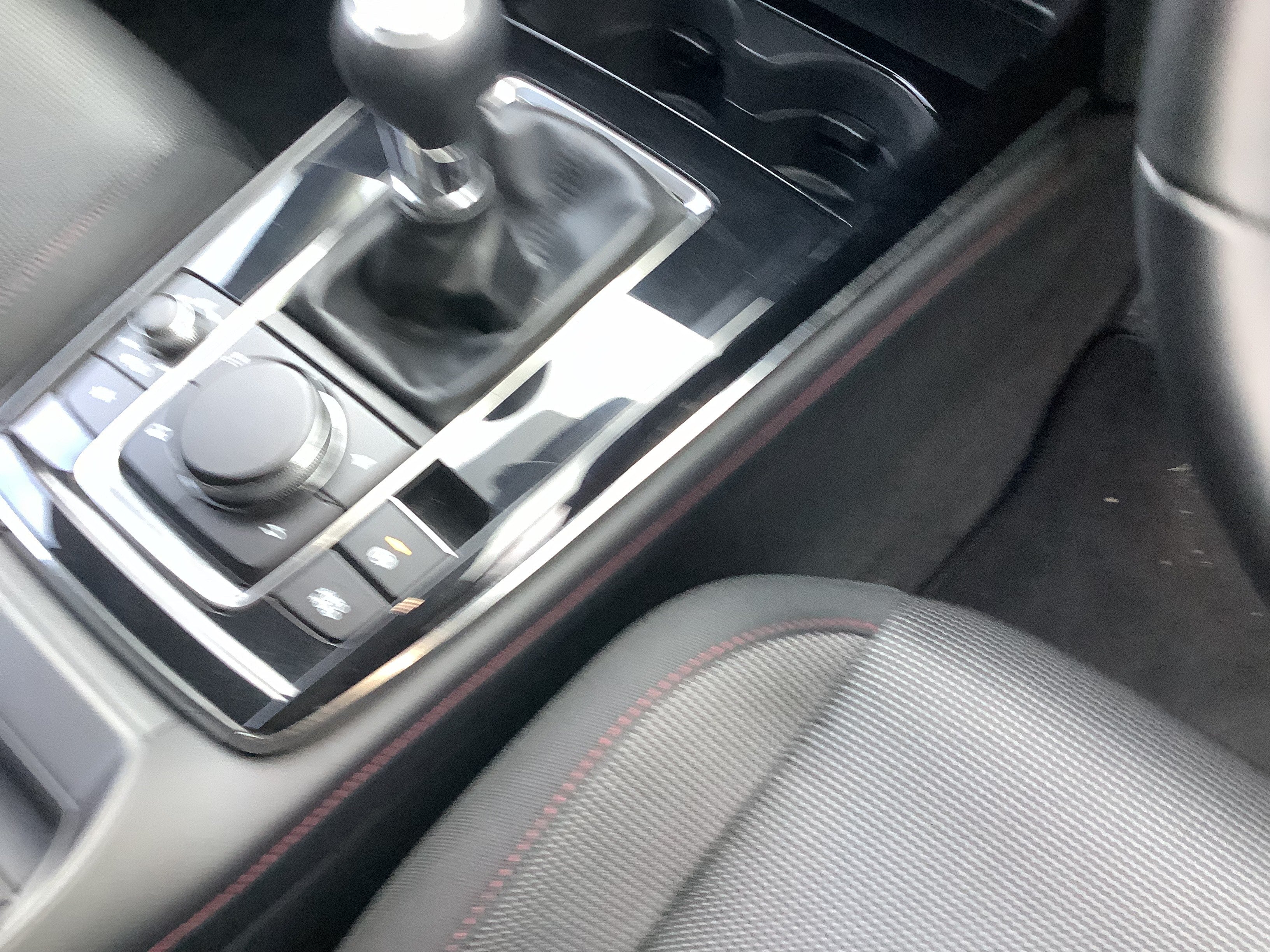
Sometimes you get cars that look incredibly exciting, exotic even, but underneath their highly styled exteriors lies engineering of a decidedly more unadventurous nature. The original Ford Capri, for example, (1969 and now highly collectable), had gorgeous looks inspired by its American cousin, the Mustang, but some basic engines and suspension.
Then again, some cars look fairly mainstream but harbour some extraordinarily smart and innovative engineering. Such is the Mazda CX-30, a compact SUV equipped with a new powertrain, which makes a strong case for itself.
The “TL;DR” version is that the Mazda is fitted with an engine that delivers reasonably good performance but with excellent fuel economy, especially out of town, and relatively low emissions. It runs best – and most enjoyably – with the slick six-speed manual transmission, with the motor revved hard, and in front-wheel drive form. There are all-wheel drive versions available, fulfilling the off-road pretensions highlighted by its “crossover” SUV styling and black protective cladding around the flanks, but two driven wheels are all that almost anyone will ever need.

It’s surprisingly fun to drive, and as an older basic design than the Ford Puma or VW T-Roc, it holds up well. Against a more modern battery electric vehicle, such as, say, the Kia EV3, it certainly feels more old-fashioned inside, with more knobs and buttons and a smaller touchscreen that only functions on that basis when the car is stationary.
Otherwise, you have to use a big click wheel between the two front seats; but as I say, all the most used features are readily accessible via traditional controls. Things are better and safer that way. “Homura” trim is the ideal one for value – heads-up display, parking cameras, powered tailgate and heated seats come with a modest premium.
Now, may I indulge myself by discussing how Mazda’s engineers, who remain enthusiastic about the internal combustion engine and the joys of driving, have created this little wonder car?
It’s full of bold choices. For a start, it boasts a uniquely large engine capacity for the class – 2.5 litres, and “normally aspirated”, so no turbochargers or superchargers to boost power output (and stress the engine), as you might find on the 1.0 litre Ford Puma, say.
The Spec
Mazda CX-30 140PS Homura
Price: £29,235 (as tested, range starts at £26,435)
Propulsion: 2.5l, 4-cyl petrol engine with mild hybrid
Power output (hp): 140
Top speed (mph): 121
0-60 (seconds): 9.7
Economy (mpg): 47.1
CO2 emissions (g/km): 135
The Mazda engine still revs hard but produces more than ample power, even at lower revs. The sheer size of the engine means it thus has plenty of torque, and doesn’t have to try too hard to deliver it. This makes it very flexible, and it’s difficult to labour the engine or find yourself in the wrong gear.
Normally, a big engine means high fuel consumption and emissions, but not here. The “e-Skyactive G” unit (“G” for gasoline) has an extremely efficient method of ignition, relying more on compression to ignite the petrol rather than spark plugs.
When cruising, the engine will also turn off a cylinder or two, again promoting high economy with no less performance, as it can intelligently switch back if pressed. They’ve also thrown in a light mild hybrid system that gives a little more boost when needed. Even something as innovative and bold as the CX-30 is never going to deliver the optimal blend of refinement, low running costs and acceleration as a battery electric car; but it’s good value and will still appeal to some families.

The CX-30 is such an impressively designed vehicle that it might even make normal people interested in the splendid technological feats being smoothly performed under the bonnet at a rate of 5,000-plus revolutions per minute. Less tempting is the CX-30’s “packaging”, which betrays what can only be a lack of interest in the task.
Throughout the car, the materials used are of high quality, if uniformly sombre greys, blacks and silvers, and it feels like a solidly built machine that should prove quite reliable. At the front of the cabin, it can’t be faulted except for being possibly too “serious”. The back half of the car is more disappointing – very tight, even with just two adults in the rear seats, and a small boot lacking any clever features (something the Puma is very good at). What does it amount to? A driver’s car that no one much knows about. Which ain’t right.







